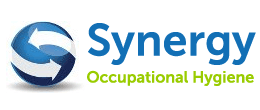Drug Testing in the Workplace: Methods, Benefits and Legal Considerations
In today’s safety-conscious and productivity-driven work environments, drug testing in the workplace has become a vital part of many employers’ health and safety strategies. Whether in safety-critical industries like construction, transportation, and healthcare or in corporate settings, employers have a legal and ethical responsibility to ensure their workforce is fit for duty.
This blog explores the main types of workplace drug tests, the substances they detect, the role of Point-of-Care Testing (POCT), and what UK legislation says about managing drug and alcohol use at work.
Why Employers Conduct Drug Testing
Employers introduce drug and alcohol testing policies to:
- Promote workplace safety
- Support employee health and well-being
- Comply with industry-specific regulations
- Minimise risk of accidents, errors, and legal liability
- Detect and deter substance misuse
Types of Drug Tests Used in the Workplace
1. Blood Sample Drug and Alcohol Test
Blood testing is one of the most accurate and reliable methods for detecting recent substance use. It provides a direct snapshot of what is currently circulating in the bloodstream, making it especially useful in:
- Legal investigations
- Medical emergencies
- Cases where immediate intoxication levels are important
However, blood tests are invasive and don’t provide instant results, so they are less commonly used in routine workplace testing.
2. Urine Drug Test
Urine testing is the most widely used method in workplace drug screening. It is:
- Non-invasive
- Cost-effective
- Able to detect substances used over the past few days to weeks
While it doesn’t indicate current impairment, it provides a strong overview of an individual’s substance use history.
3. Hair Drug Test
Hair testing provides the longest detection window, identifying drug use over several months. It is:
- Effective for spotting long-term or habitual use
- Useful in legal cases or for pre-employment screening
However, it is less effective for identifying recent or one-off drug use.
What Substances Do Workplace Drug Tests Detect?
Workplace drug screening—especially through POCT—can detect a broad range of substances, including:
- Cannabis (THC)
- Cocaine
- Amphetamines and Methamphetamine
- Opiates (e.g., codeine, morphine)
- Benzodiazepines
- MDMA (Ecstasy)
- Phencyclidine (PCP)
- Barbiturates
- Tricyclic Antidepressants
- Oxycodone
- Ketamine
- Synthetic Cannabinoids
- Synthetic Stimulants
- LSD
These tests can be tailored depending on the role and level of risk involved.
The Rise of Point-of-Care Testing (POCT)
What is POCT?
Point-of-care testing (POCT) refers to drug and alcohol tests carried out on-site, delivering results in minutes. This approach is transforming how employers approach workplace safety and compliance.
Key Advantages of POCT:
- Fast Results: Decisions can be made quickly in safety-critical scenarios.
- Cost Savings: No need for lab processing or transportation.
- Increased Efficiency: Testing can be integrated into the workday with minimal disruption.
Industries like Network Rail are adopting POCT to support a safety-first culture while improving operational responsiveness.
What Happens if a POCT Result is Non-Negative?
A non-negative POCT result doesn’t confirm substance misuse on its own. For legal and procedural validity:
- The sample should be sent to a UKAS 17025 accredited laboratory for confirmatory testing.
- MHRA-approved tests should be used as they meet industry benchmarks to ensure the reliability of test results.
Confirmatory lab results ensure defensibility in disciplinary action, protect employee rights and support fair workplace practices.
UK Legislation: Employer Responsibilities
Under the Health and Safety at Work etc. Act 1974, employers have a legal obligation to protect their employees’ health, safety, and welfare. This includes:
- Recognising signs of drug or alcohol misuse
- Developing and communicating a clear substance misuse policy
- Providing support or referral routes for employees struggling with addiction
- Taking appropriate action where safety is at risk
Proactive policies reduce risk and promote a supportive, health-conscious workplace culture.
The Importance of Drug Testing in the Workplace
Drug testing in the workplace is more than just a regulatory requirement, it is a proactive step towards a safer, more productive working environment. With modern tools like POCT and a clear understanding of your legal obligations, you can develop a drug and alcohol policy that balances safety, fairness, and compliance.
Whether you’re revising your existing policies or exploring testing for the first time, understanding the types of tests available and their applications is key to making informed decisions.
Synergy Can Help Ease Your Drug and Alcohol Testing
Our team has vast experience helping organisations carry out workplace alcohol and drug testing. We only use MHRA-approved tests, and for negative results, partner with UKAS 17025 accredited labs to verify results.
We tailor our service to your specific needs and conduct it in a discreet, non-intrusive way to minimise business disruption.



